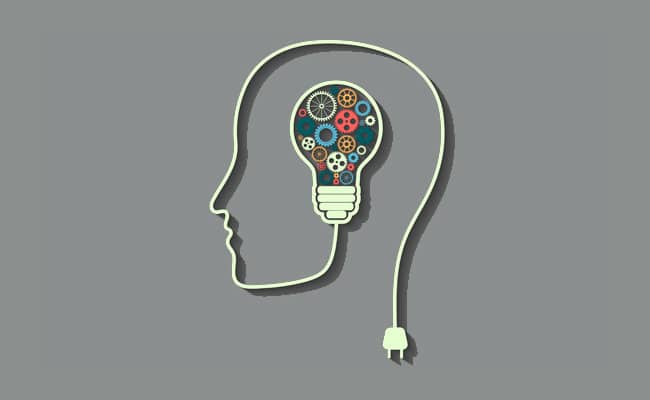It could be said that this type of knowledge is and has been the most used by the human being, this because it is the most primitive thought that exists, based solely on intuition and the knowledge learned by experience when performing some type of activity for a considerable period of time.
Intuitive knowledge is carried out when reason is not used, based on past experiences, or by failure and error, intuitively knowing the exact moment in which anything related to the activities in which this thought can be developed can fail, fall, or act wrongly, it could act subconsciously and almost at an instantaneous speed, since our brains and muscles activate their sensory process to prevent a certain failure from happening.
Meaning of intuitive thinking

The knowledge of some process, attitude of people with whom he lives on a daily basis, or of some system can allow the person to know in detail any change that occurs in these.
This can be defined as the immediate reaction to stimuli, problem solving and overcoming obstacles and new solutions, without the use of reasoning, acting in an unconscious way, because the body gets used to the reactions or situations that arise. may present.
Features
There are some characteristics that denote the advantages that this type of thinking can have, and demonstrate the difference it can have when acting with it, and these are:
Intuition: As has been shown previously, this thought has as its main tool, the intuition of the person, which it uses to generate knowledge subconsciously.
Knowledge source: This knowledge creates the deposits of reasonable knowledge, which intuitively stores information, and at the moment of having an interest in a certain topic, the existence of some prior knowledge can be noticed, which was obtained through the experience of past experiences.
Without demos: This type of knowledge does not need the help of some intermediary, be it visual, tangible or expressible.
Deep apprehension: The data obtained in this subconscious way is permanently stored in memory, since it does not need processes that can become tedious and that tend to exhaust our conscious state, forcing it to learn a subject in which it might not be interested. .
Discovery: With the simple fact of observing something new, never seen before, and that there are no intermediary factors to indicate the meaning of that object, or action, the subconscious will begin a process of analysis, which will mark that new knowledge.
Autonomy: last but not least, intuitive knowledge is based on a self-judgment of any situation that may arise, being only dependent on it.
Examples of intuitive knowledge
When you have experience in some area, or when you have known an individual for a long time, you can notice with the subconscious thought any changes that they may present, immediately knowing the presence of a future problem, and its possible solution.
Examples with acquaintances
You can tell when a person is happy, sad, nervous, wants to cry, is upset, is scared and basically any feeling or symptom that shows with physical, gestural and verbal expressions. Simply observing them will immediately and subconsciously activate the feeling that the person may have a problem, that they have received bad or good news, among many other examples. On several occasions, intuitive knowledge can be deceived, since many people can fake some emotions with very good performance.
Example with risk situations
There is the possibility that at the time of being in a situation close to a danger, or that it can cause or trigger events that end up being dangerous for the integrity of a person, the intuitive thought process is activated, which subconsciously will be sending signals so that the aforementioned actions are avoided, thus avoiding suffering any damage.
Example of experiences
Once the person has spent a certain amount of time making a product or exercising an activity, it can be known subconsciously when any event that leads to a bad procedure or that damages the final product may be happening, such as: when a lifeguard who is on guard in a pool, observe that a child under 8 years old goes in the direction of a pool more than 1,50 meters deep, which would be greater than this, could intuitively deduce that if the child entered In this pool, drowning could occur, due to lack of swimming knowledge, or because it does not touch the floor with its feet.
It is important to note that intuitive knowledge is more common in rural communities, because they do not have instructions, or structures to carry out their daily tasks, as they do in urban areas, which has all been conformed within a set of regulations that they force participants to think with reason.
The indigenous people who live in modern times, away from all the technologies, shortcuts and advances proposed by humanity until today, have developed this type of knowledge in a majestic way, since they have to use it daily, for most of their chores, such as fishing, hunting, preparing meals, making clothing, among others.
Not only modern indigenous people use it, but also, the oldest human beings evolved thanks to this type of intuitive actions, improving every day when they saw the problems they had to deal with at that time.
Although this is a knowledge used since the beginning of the times of humanity, and to this day it continues to be used, other types of knowledge must also be taken into account, to have a better balance of the information that is perceived daily in all areas.
This type of knowledge we locate that we can help with the information ...